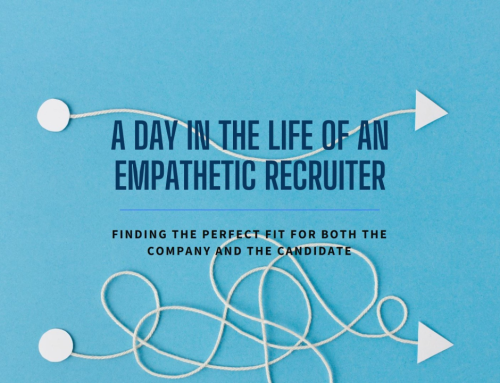Tips From a Seasoned Recruiter on Successfully Managing Millennials
Millennials have surpassed baby boomers in number and arguably in their impact on the workplace. In the decade or so since this group started entering the workforce, they’ve shaped office cultures in all industries — from startups to accounting firms. And despite the plethora of articles on the topic, the truth remains clear: leaders are in need of guidance on how to effectively hire and manage millennials.
That’s why we’re bringing in MadSourcer’s resident expert on millennial recruiting, Anthony Ysasaga. Through this Q&A, we’ll learn a bit about what companies can do to create an office culture that supports millennials – and thus business – success.
Q: What happens when companies refuse to adjust their environment to millennial demand? In other words, why should businesses care what millennials want?
In my professional history as a recruitment consultant, I worked with a large and very traditional company that suddenly found itself losing employees in droves. We found out that this was because they were clinging to their traditional methods of running their business, which had worked for them for over 50 years.
They wanted to be able to recruit and retain more millennials but they were sticking to old-school methods like working their younger employees 70-80 hours a week. Millennials are actually much more productive at their jobs in a 40-hour workweek that allows them to have a life outside the office. It’s also important that they feel engaged with their employer. By making a few changes, this particular company was able to cut attrition from 20 percent down closer to the industry standard of seven percent.
Q: So, what exactly do millennials want from their employers?
It is important to understand that millennials aren’t really motivated by economic or societal pressures the way generations before them were. Things like financial stability, a big house, a nice car, and a savings account are nice to have but not what drives millennials the way it drove previous generations.
The millennial thinking pattern can be summarized by what I call “the three P’s.”
Play: Millennials place a high value on being happy. They are motivated by the actual work they do. By allowing this generation to have some fun with their job through solving challenging problems, thinking outside the box and exploring creative solutions, they will do better work and come away more personally fulfilled.
Purpose: Let your employees see how their work is important to the big picture. Millennials are known for taking ownership of their work. They want to see the value of what they do and the impact it has on the overall success of the company and the people your business serves. They need to know their contribution is important.
Potential: For millennials, the work they produce is wrapped into their identity as a person. They want to feel like their time spent on the job fits into their life goals.
Q: We all have heard the stereotypes about millennials. What are some common misconceptions about this group?
The most common misconception I hear about millennials is that they’re lazy or entitled. This couldn’t be further from the truth. Millennials want to work hard – they just want to make sure the work they do serves a purpose. For them, work and personal life aren’t completely separate. Their sense of purpose and identity are intimately tied into the work they do and they pour their hearts and souls into their jobs.
Q: How can business owners shift their culture to create a place where millennials thrive?
We’ve already touched on this but work/life balance is important because millennials don’t separate who they are at work from who they are outside the office. Understand their need to fulfill themselves personally and how it ultimately benefits the professional work they do.
Consistent feedback is huge to this generation. I remember in the early years of my career being handed a project and not knowing until my annual review how I did on it. Millennials want to learn and grow as professionals, which requires constant knowledge of how their work is performing. This is why annual reviews aren’t as meaningful for this group. Providing frequent opportunities to touch base with their manager, team leads or peers on their performance is much more beneficial.
Millennials want to feel a sense of independence at work. If you can learn, as a manager, to focus on the end result and not the method used to get there you’ll have an easier time managing millennials. Gone are the days when several bosses stop by your desk to tell you about how you did your TPS report incorrectly. Allow millennials to take ownership in their jobs.
Q: Any other tips for creating a millennial-friendly office culture?
It isn’t so much about creating a culture for millennials as letting the culture happen. A good rule of thumb is to let go of any of the old rules that don’t really affect the work being done. Be accepting of things like body jewelry, colorful hairstyles and visible tattoos in the workplace. Those types of self- expression are not really worth worrying about.
Allow your company culture to become an ecosystem of the different personalities, abilities, and roles of your employees. Look for the strengths that your employees have as individuals and how they can contribute to the tribe. Allow the office culture to change and adapt to the people working for you and not vice versa.







I truly appreciate your work, Great post.